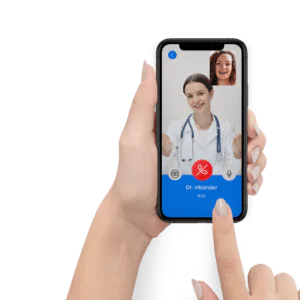One of Poland’s biggest medical clinic chains.



One of Poland’s biggest medical clinic chains.
Our client provides healthcare services to thousands of people every day. Like many institutions of its kind, its operations are largely based on paper document flow. This makes data management and processing time-consuming and difficult. Additionally, working with paper documents is largely prone to human error, leading to a significant number of mistakes.
To improve the efficiency of operations, as well as raise the level of patient services, the organization wanted to:
Digitizing the processes seemed like the best solution. Our experts recommended to introduce a dedicated digital platform for document management.
Developing a proof of concept validated the usefulness of the solution, however, it raised another concern. Introducing a brand new tool to a well-established and business-critical process was met with some apprehension from the end-users.
The nurses, who were to use the platform, were accustomed to the previous process, some of them for years. Having had extensive experience with the documentation, they found the paper flows more convenient and saw no need for altering them. If the new platform was to be successful, we had to take a user-centered approach.
As key stakeholders, the nurses were included in product development, to develop their confidence in the solution but also to ensure that it is as convenient as possible for them to use.
During dedicated sessions, the employees shared their concerns and requirements to help us inform the new platform. To ease the adoption process, the working methods they knew best had to be digitized first. This way they could move gradually into the new digital environment.
Instead of designing a completely new user interface, we chose to digitize the patient card, keeping the existing fields and features. Data entry followed the manual process to minimize the difference in using the two. This approach allowed us to create a platform interface that was familiar to medical professionals.

Prioritizing users’ needs and concerns allowed us to move forward fast with development. In less than a month, we presented the first version of the application to the nurses.
Time spent on trying to understand the users’ needs allowed us to build the platform they wanted. In addition, less time was needed for user training because the digital platform was similar to the work environment they already knew.
As a result of the engagement, the organization can now leverage digitized processes, making document processing much faster. Data is more secure and easy to manage and retrieve. This has freed up the employees’ time for patient care and other responsibilities, allowing the organization to function more efficiently as a whole.